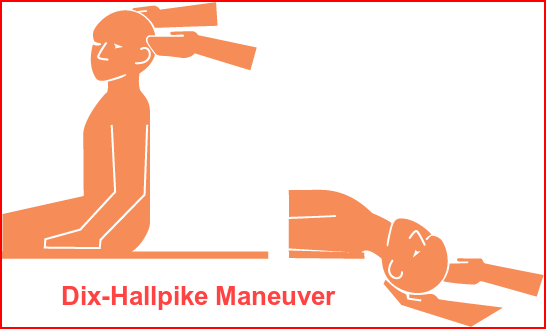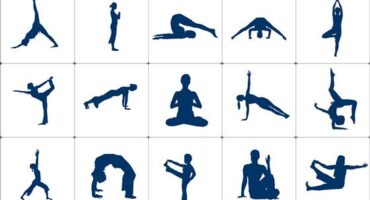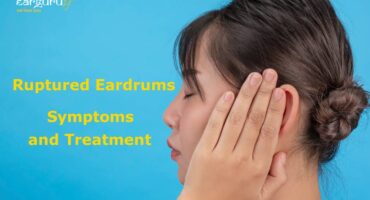Have you ever found yourself in a situation when you felt lightheaded and dizzy? Disoriented? and the surroundings are spinning? Well, this is what vertigo feels like. It can happen at any age but it mostly affects people aged 65 years and above. Constant dizziness indicates that something is wrong with our bodies. Random dizziness occurs due to common cold, diarrhea, and ear infection, and is curable. But when the bouts are very frequent, do not ignore them and immediately visit an ENT doctor. Let us get familiar with the causes, symptoms and, available vertigo treatments.
What Is Vertigo?
Vertigo is a common health issue that many people experience. It is a spell of dizziness and headache where one also feels that they are in some kind of motion. One of the most important things to understand is that vertigo is not a disease but rather a symptom of other health issues. Some people may experience dizziness while they look down from a height or due to other ailments. Vertigo is of two types, central and peripheral vertigo.
What Does Vertigo Feel Like?
It is quite challenging to explain what it feels like unless one experiences it. People who experience sudden blurred vision and dizziness also feel they are in motion even if they are not moving or might get a feeling that the surroundings are spinning.
What Are The Vertigo Symptoms?
Vertigo is itself a symptom caused by other diseases or health conditions. It is mostly accompanied by several other symptoms, some of the other symptoms of vertigo are:
- Waking up dizzy
- Light headed and dizzy
- Dizzy and nauseated
- Motion sickness
- A feeling of air inside your ears
- Tinnitus or ringing in the ears
- Problem in balancing
- Dizziness and Headache
What Causes Dizziness?

Vertigo can be a result of a temporary change in the body or a permanent disease; it can be Central or Peripheral vertigo. Central vertigo is associated with the brain or the central nervous system, while peripheral vertigo is related to the ears; about 93% of the cases are of peripheral vertigo.
Below are some of the other common conditions that can cause dizziness and vomiting.
Labyrinthitis
The problem takes place due to an inflammation in the labyrinth of the inner ear due to an infection. The vestibulocochlear nerve endings in this area stimulate the brain cells that lead to random dizziness and other issues, such as pain in the ear or even blurry vision.
Vestibular Neuritis
This condition is almost similar to labyrinthitis, but here the vestibular nerve gets inflamed. But in this condition, the person does not face hearing loss, which is an important symptom in the case of labyrinthitis. The symptoms of vestibular neuritis are nausea, blurred vision, and balance problem.
Benign Paroxysmal Positional Vertigo
BPPV is the most common cause, the problem is caused by the movement of our head. The movement causes the tiny calcium carbonate crystals in the inner ear to move around, and the movement causes the crystals to touch the sensory cells in the semi-circular canal which trigger bouts of severe dizziness 1.
Dizziness In Early Pregnancy
Pregnancy is the time when women go through several hormonal changes. Pregnancy often leads to a change in the characteristics of the fluid in the inner ear that can lead to dizziness In early pregnancy and related issues.
What Are The Other Conditions?
Apart from the conditions mentioned above, many other conditions may cause vertigo, such as head injury, ear surgery, and multiple sclerosis.
What Are The Causes That Can Cause Dizziness?
Apart from some common conditions, certain diseases can cause vertigo. Below are some of the associated diseases.
Cholesteatoma
Cholesteatoma is a kind of a skin growth noticed in the middle portion of the ear and is usually non-cancerous. It is due to repeated infections. A cholesteatoma usually grows behind the eardrum and can erode the tissue of the middle ear. The condition can cause issues such as dizziness and hearing loss.
Meniere’s Disease
Meniere’s disease 2 is a disorder of the middle ear and can lead to dizziness and vomiting, tinnitus and, hearing loss.
Perilymph Fistula
Perilymph Fistula is caused due to a ruptured eardrum or in some cases, a tear in the ligament between the inner ear and middle ear. As a result, the fluid gets displaced which leads to miscommunication with the brain. Perilymphatic fistula can also cause constant dizziness and headache, followed by other symptoms.
Otosclerosis
Otosclerosis is the abnormal bone growth in the middle ear; it causes a blockage for which surgery is advised. Otosclerosis causes dizziness and balance issues.
Ataxia
Ataxia occurs due to the injury to the muscles, nerves, or directly to the brain, mainly the cerebellum, which is responsible for maintaining balance and coordination in the body.
Migraine
Migraine is an intense headache that can cause vertigo at times. There can be several causes of migraine, such as stress and pungent smell. A person suffering from migraine needs to stay away from the things that can trigger the condition.
Acoustic Neuroma
Acoustic neuroma is a benign growth on the vestibulocochlear nerve near the inner ear. Acoustic neuroma can cause dizziness and balance issues.
- Cardiovascular diseases that are quite common in older people can be one of the reasons.
- Severe ear infections or problems in the ears are also the reasons that need urgent attention and treatment.
- Any kind of injury to the head
- Any type of medication that you are taking such as antipsychotics or antidepressants
How Is Vertigo Diagnosed?
Unless the spell is temporary due to hormonal changes during pregnancy, the following tests help in diagnosing vertigo.
The Head Thrust Test
The Head thrust test or the head impulse test is to test the reflex system. The test determines the coordination of the eyes and the inner ear.
Romberg Test
The doctor will ask you to close your eyes and stand with your feet together. Your balance is observed.
Fukuda-Unterberger Test
The doctor will ask you to close your eyes and walk straight, it diagnoses the side affected by vertigo depending on the drift from the centerline.
Dix-Hallpike Test

In the Dix-Hallpike Test or Dix-Hallpike maneuver, you will be asked to rotate your head to one side at an angle of 45 degrees, and then to the other side, the doctor will observe your eyes to determine if the issue is in the inner ear or the brain. The turning of the head can trigger vertigo.
Diagnosing Vertigo Associated Diseases
Once the diagnosis confirms the presence of vertigo, it is essential to know the cause leading to it.
The doctor will first check the ears to confirm if the problem is ear-related. You have to undergo Pure-tone and impedance audiometry tests.
If it is not an ear-related issue, tests like MRI or CT scans is the next step. In severe cases, neuroimaging techniques also diagnose the nerve-related diseases that may have caused the vertigo-associated illness.
What Are The Vertigo Treatments?
- Vestibular rehabilitation is a physical therapy for dizziness, it will strengthen the vestibular system to improve balance and reduce dizziness and headaches.
- If it’s due to pregnancy, your doctor will prescribe drugs such as antihistamines that are mainly for nausea.
- In a situation of Benign Paroxysmal Positional Vertigo (BPVV), the medical expert may ask you to practice an unusual movement Epley repositioning maneuver to clear the canalith particles (otoconia) in the inner ear to prevent dizziness.
- If the dizziness and headache is due to cold or ear infection, the doctor will prescribe antibiotics.
- Prescribing medicines like – antihistamines, Benzodiazepines, and antiemetics.
- Diuretic medications are an option for Meniere’s disease.
Recommended Vertigo Treatment At Home
Though it is always good to take advice from medical professionals, some alternative vertigo treatment at home can be tried for immediate relief.
- Making some small changes in your lifestyle, such as making Epley maneuver a part of your exercise routine can be very helpful.
- Sitting down or lying down with eyes closed during a bout.
- Bed rest gives relief to people suffering from a stroke.
- Keep an extra pillow under your head while sleeping.
- Wake up or stand up slowly to avoid sudden jerk that may trigger sudden dizziness, especially when you wake up in the morning.
- Indulge in the right kind of food to keep the hormonal changes in control. Include items such as green leafy vegetables, eggs, almonds, salmon, fish, and dark chocolate in your diet which is good for the central nervous system.
- Acupuncture can also help to cure constant dizziness in some cases.
- Practice Yoga Asanas, Shunya Mudra benefits people suffering from vertigo
References



